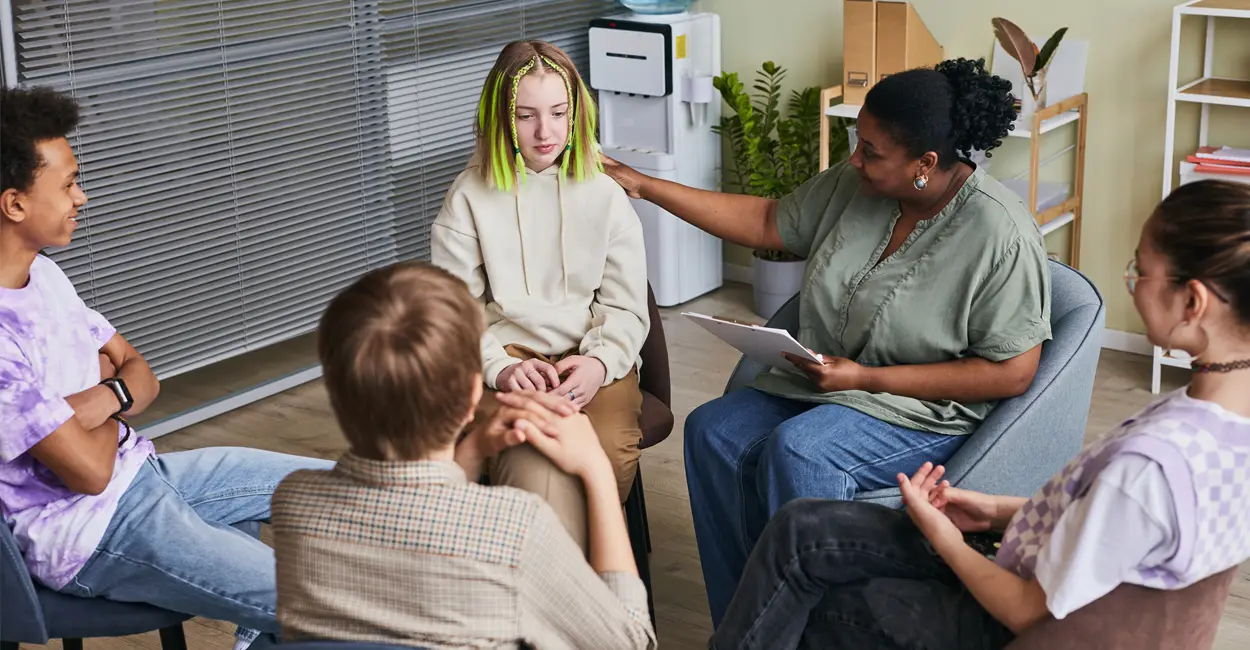24/7 Helpline:
(866) 899-221924/7 Helpline:
(866) 899-2219
Learn more about Group Therapy centers in Hubbard County

Other Insurance Options

BlueShield

Holman Group

Sutter

GEHA

Amerigroup

Anthem

Private insurance

Premera

CareSource

UnitedHealth Group

ComPsych

United Health Care

Excellus

CareFirst

Molina Healthcare

UMR

PHCS Network
Beacon

Self-pay options

American Behavioral































Pine Manor Chemical Dependency Services
Pine Manor Chemical Dependency Center is a drug and alcohol addiction treatment center located in Ne...














